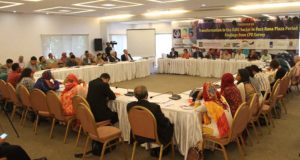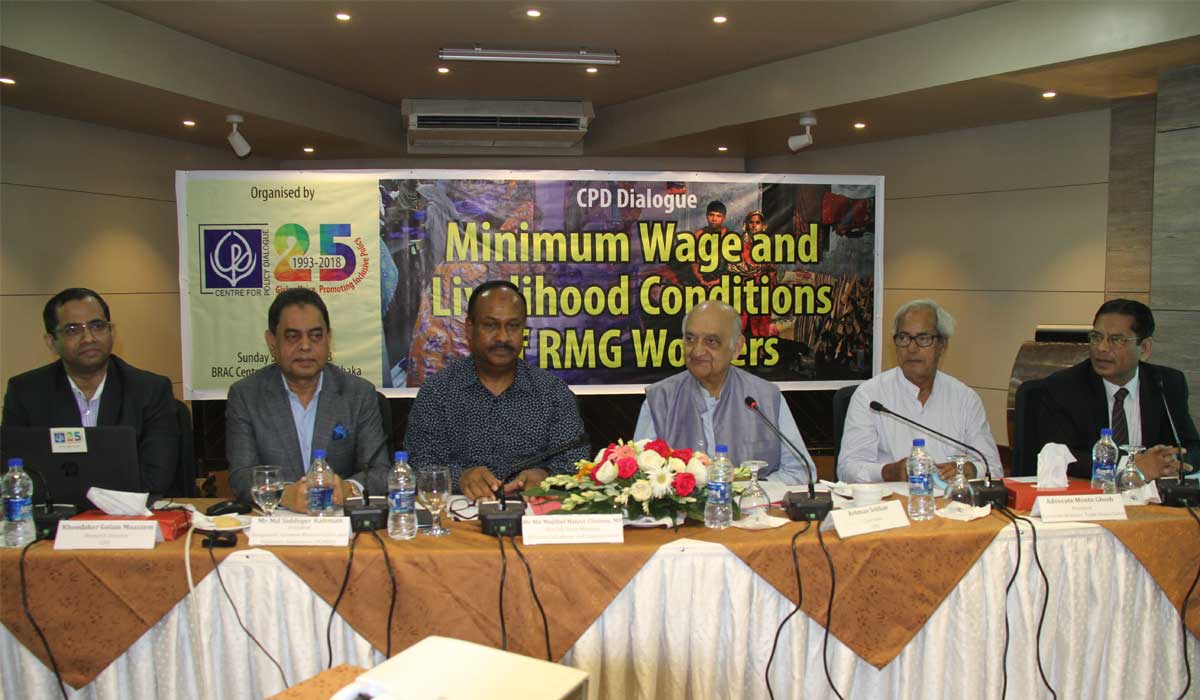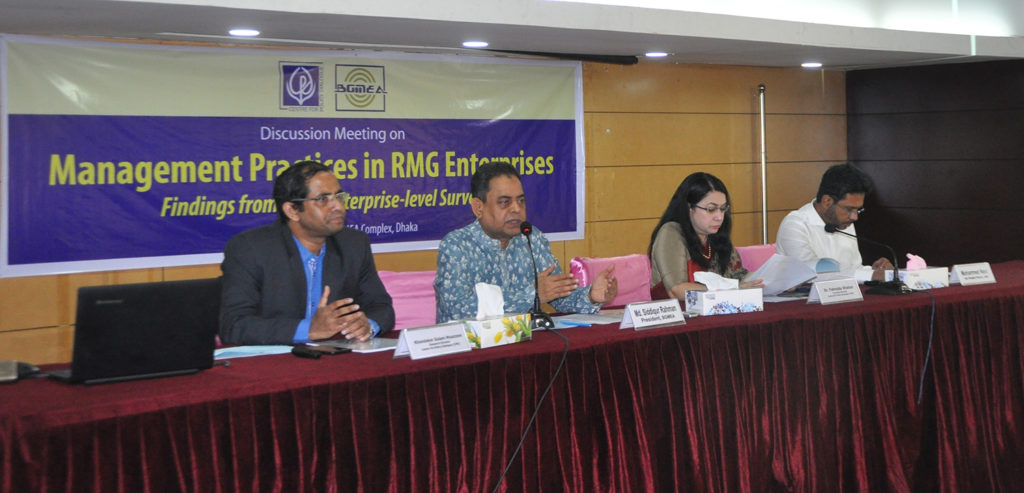
Management performance of RMG enterprises is strongly influenced by factors like group subsidiary of companies, recruitment of foreign staff and level of academic qualification of general managers. Two streams of management practices exist in Bangladesh’s RMG enterprises: advanced management practices and moderate or less advanced management practices. Advanced management practices are in application in group-based, private companies, who are foreign staff dependent, have experienced and trained management professionals and have contract with large brands. On the other hand small, distantly located factories with untrained and less educated management professionals have moderate or less advanced management practices. Bridging the gap between the two streams and bringing the prevailing management practices to an equivalent and corresponding level is essential for the development and growth of our RMG sector.
These views were voiced at a discussion meeting on ‘Management Practices in RMG Enterprises: Findings from CPD’s Enterprise Survey’ held at the BGMEA complex on Sunday, 27 August 2018.
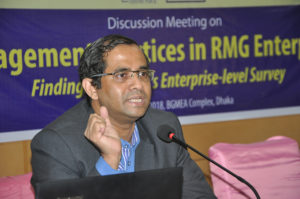 Jointly organized by Centre for Policy Dialogue (CPD) and Bangladesh Garment Manufacturers and Exporters Association (BGMEA), Mohammed Nasir, Vice President (Finance), BGMEA initiated the event with his opening remarks while the closing remarks were delivered by the BGMEA President Mr. Md. Siddiqur Rahman. Dr. Fahmida Akter Khatun, Executive Director, CPD delivered the introductory remarks at the meeting.
Jointly organized by Centre for Policy Dialogue (CPD) and Bangladesh Garment Manufacturers and Exporters Association (BGMEA), Mohammed Nasir, Vice President (Finance), BGMEA initiated the event with his opening remarks while the closing remarks were delivered by the BGMEA President Mr. Md. Siddiqur Rahman. Dr. Fahmida Akter Khatun, Executive Director, CPD delivered the introductory remarks at the meeting.
The discussion commenced with a presentation by Dr. Khondaker Golam Moazzem, Research Director, CPD on the existing management practices in Bangladesh’s RMG enterprises. The presentation covered the findings of an enterprise-level survey carried out at 226 enterprises located in Dhaka and Chittagong districts conducted under CPD’s study titled ‘New Dynamics in Bangladesh’s Apparels Enterprises: Perspectives on Restructuring, Upgradation and Compliance Assurance’.
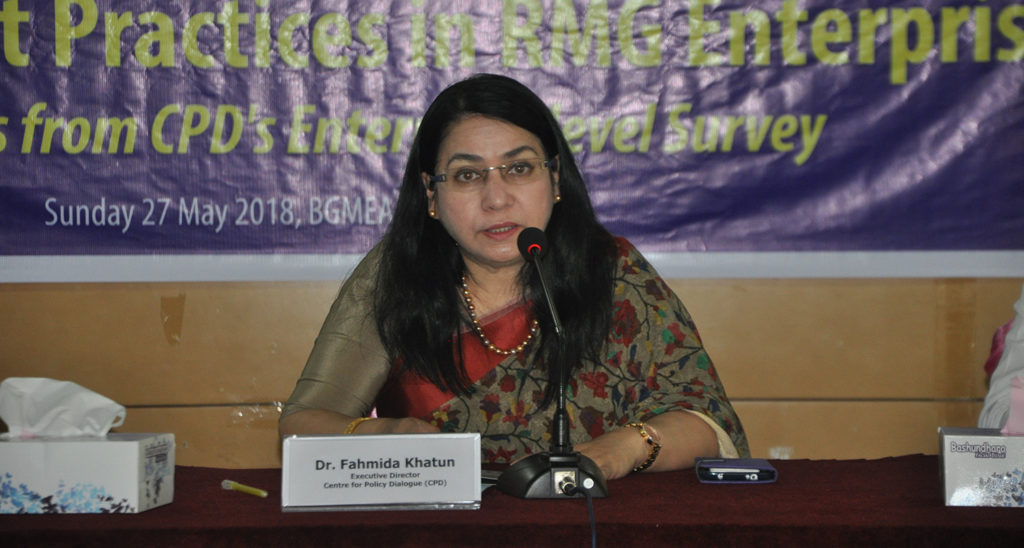
A good number of mid-level management professionals from different RMG enterprises in Bangladesh attended the meeting and participated in the open floor discussion session where a variety of issues and challenges from the industry were addressed.
Mr. Shahidul Islam, Deputy General Manager, HR from Epyllion Group observed that educational backgrounds provide little basis for professional growth in our industry as the academic lessons are usually starkly different from professional learning. He also said that although foreign professionals are better paid, domestic workers hold an advantage over them in understanding the local culture and work environment.
Mr. Kowsar Uddin Chowdhury, Head of HR & Compliance of Ananta Group was of the opinion that management practices in the RMG sector in post-Rana Plaza period have gone through massive changes in regard to safety and compliance issues. He further opined that if the educational curriculums were made more practical and skill-based they would benefit not only the fresh graduates but the overall industry.
Mr. Rezaul Karim, HR Manager of Standard Group noted that foreign workers are often preferred to domestic workers due to client’s preference and market demand. High qualified and employable graduates from the country are generally found uninterested to land a job in this field, he added.
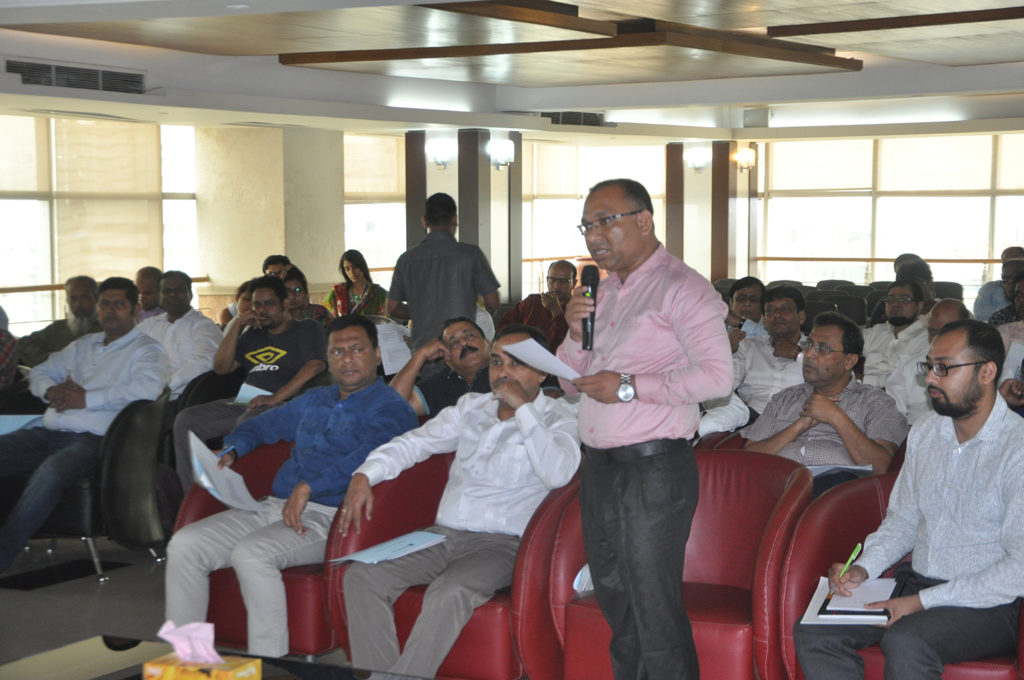
Among the female representatives, Ms. Mounita Syeda Mohsina Akter from Energypac Fashions Ltd. mentioned that female workers are often unwilling to take more challenges and responsibilities as they also have to deal with the pressure of taking care of their families and households. The management needs to play a major role in facilitating the work–life balance of female workers as well as the female workers should be willing to adopt new techniques and innovations for their professional development, she added.
Based on the analysis of the complete survey data from the factories, CPD RMG Study will publish the final report in August, 2018 where the ongoing management practices would be addressed and appropriate policy recommendations would be offered.
 CPD RMG Study Stitching a better future for Bangladesh
CPD RMG Study Stitching a better future for Bangladesh


